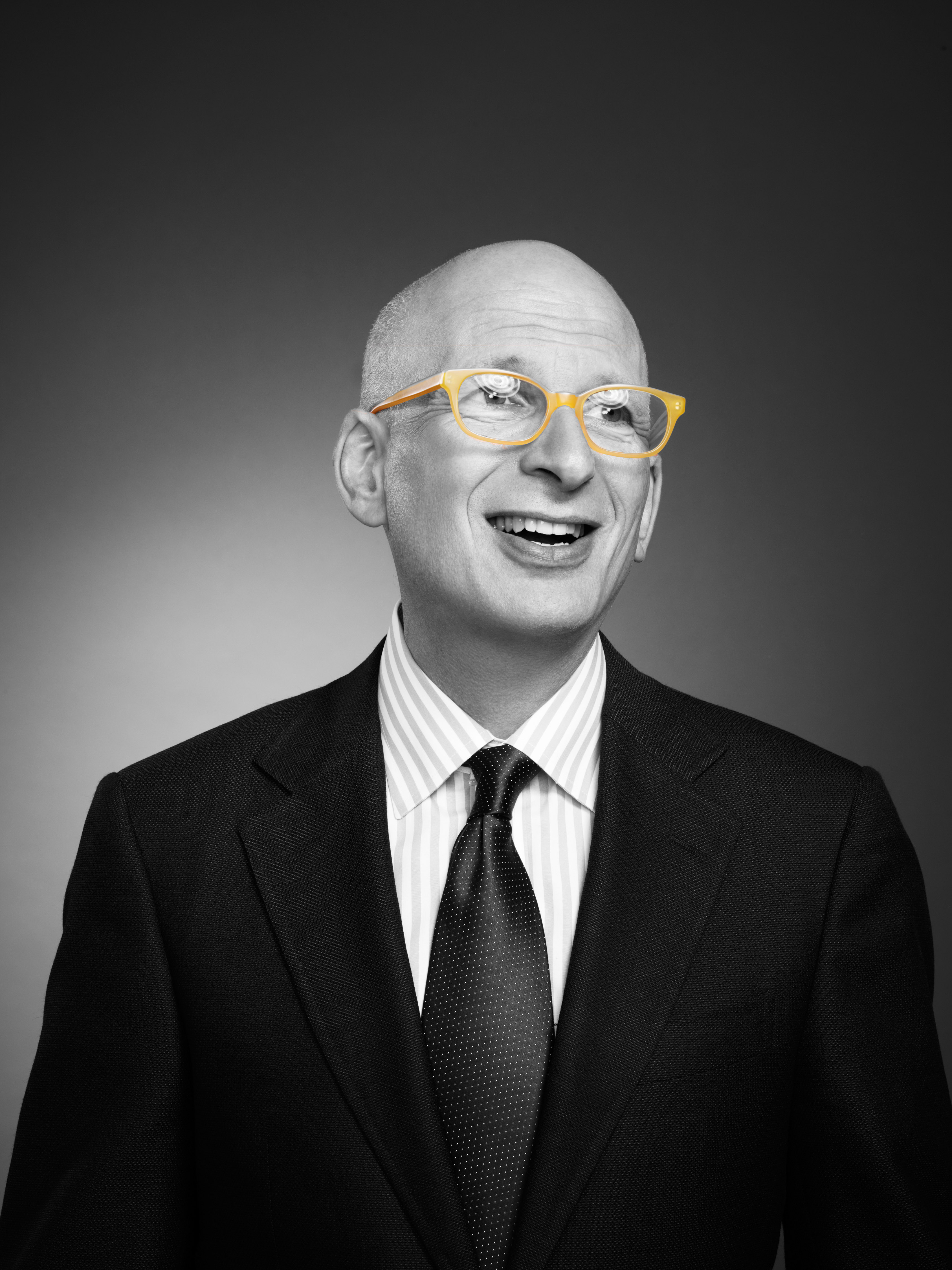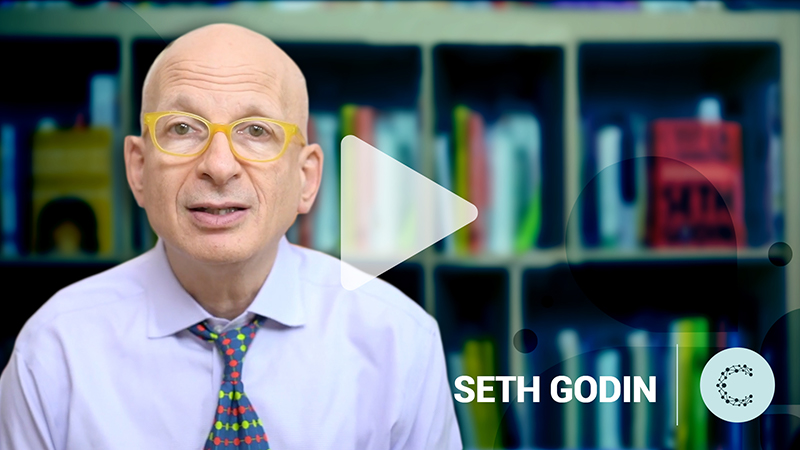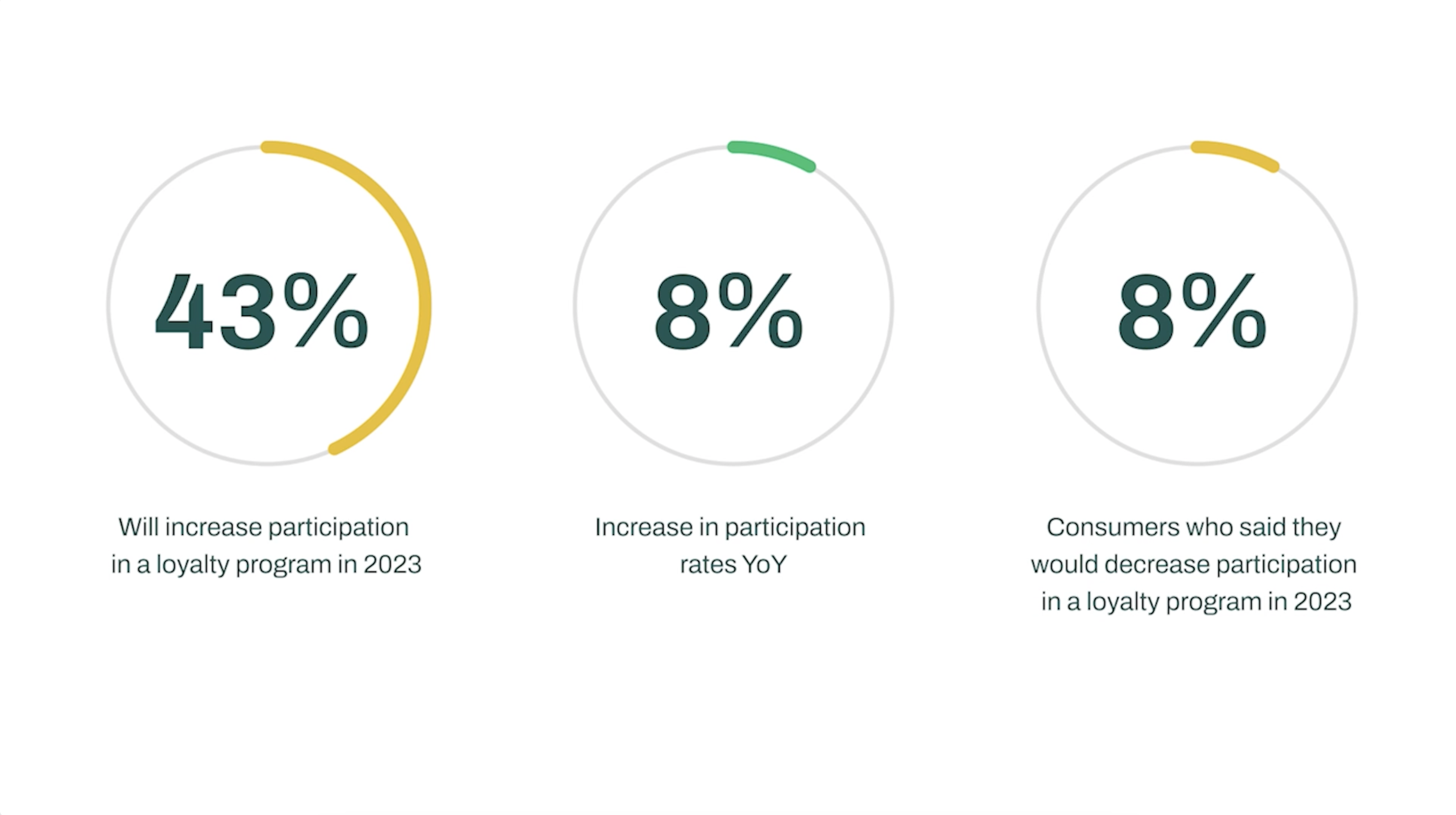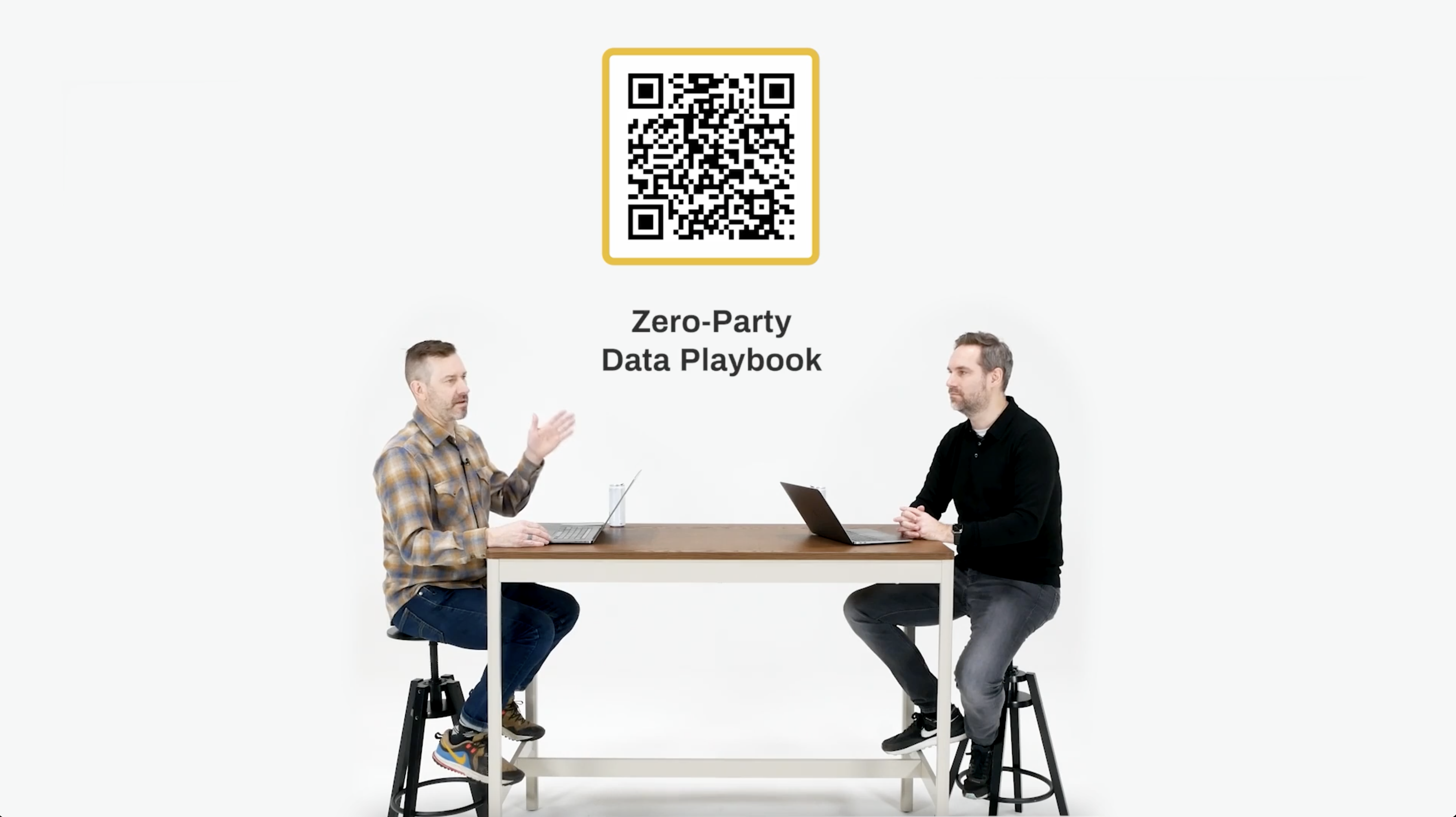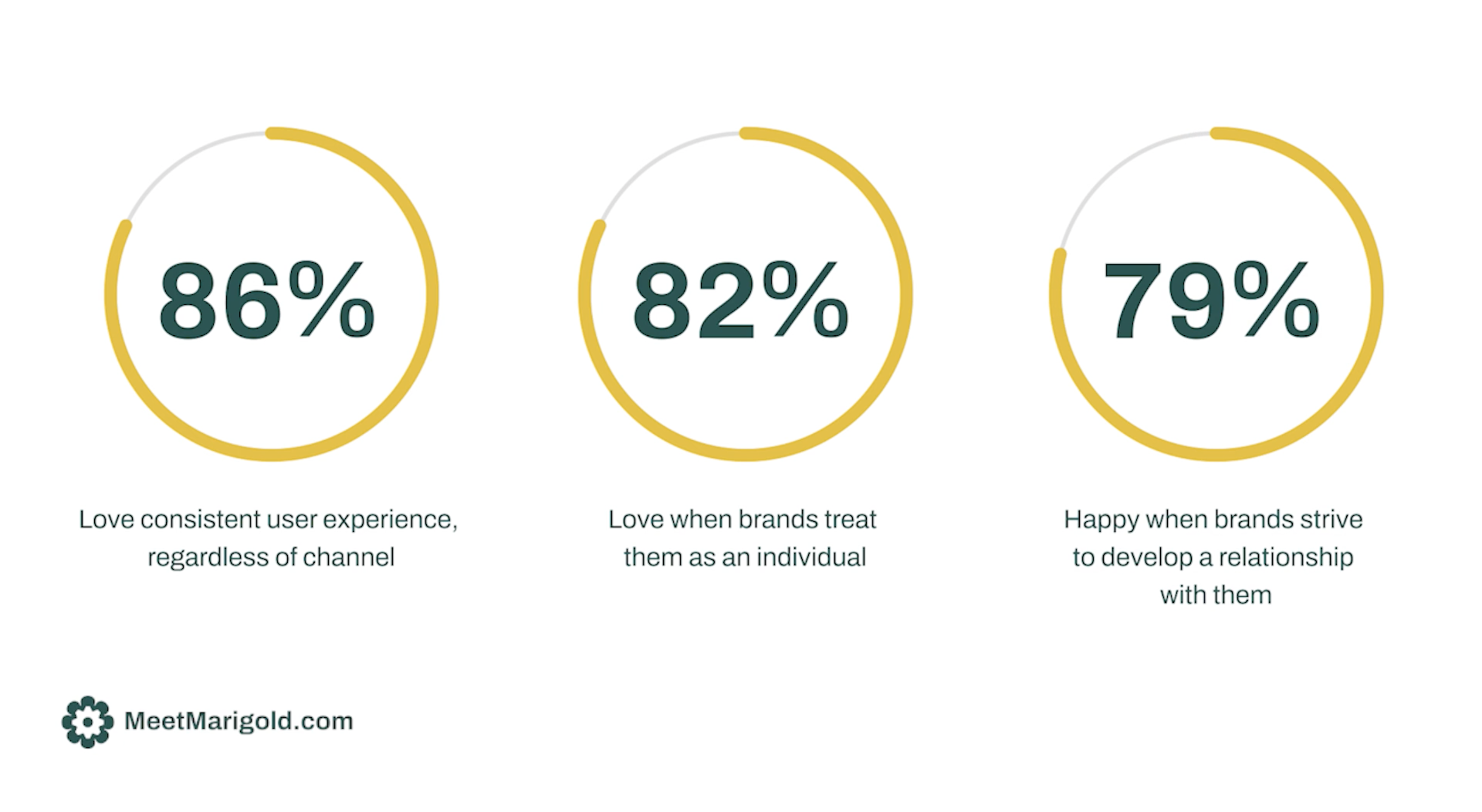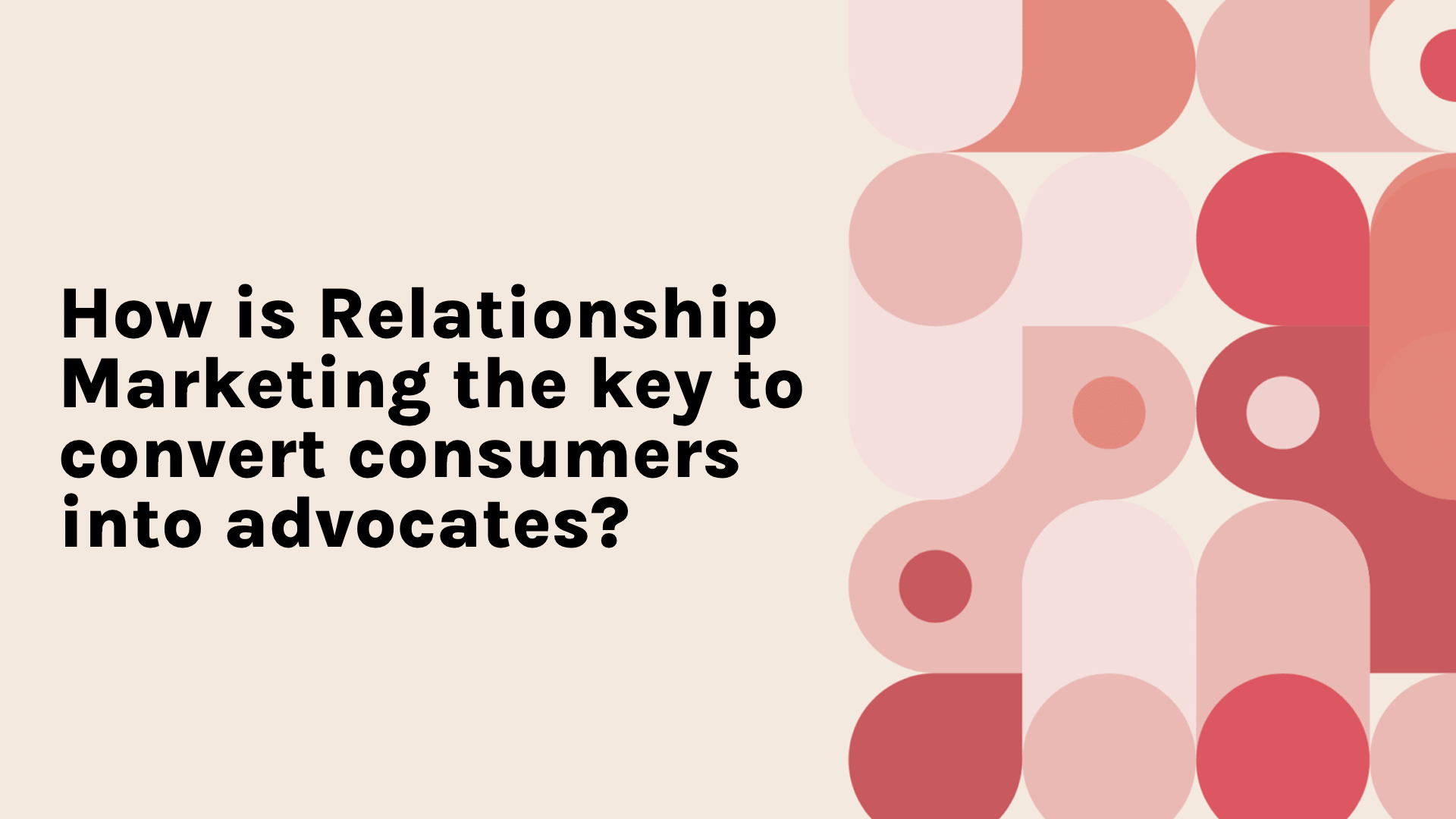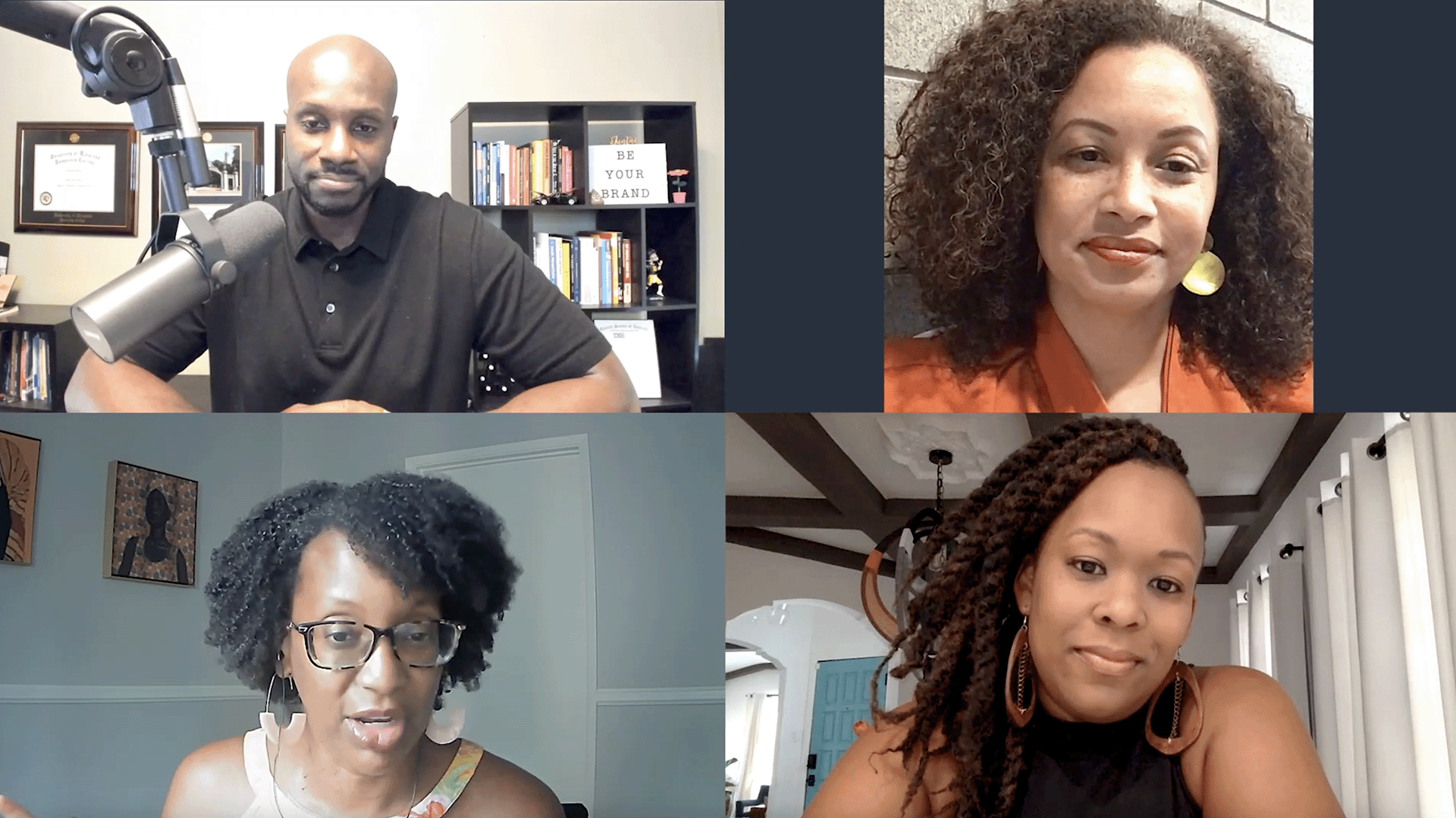Do Work That Matters For People Who Care, with Seth Godin
- 0.5
- 1
- 1.25
- 1.5
- 1.75
- 2
Speaker 1: Now we are going to get into the very first session of Signals and this is a true marketing rockstar. We have none other than the famed American author, Seth Godin, who is going to be doing a speech around doing work that matters for people that care. So Seth, take it away.
Seth Godin: Hey, it's Seth Godin. Thank you for being here and thank you Cheetah for having me. Lots to cover in the next 45 minutes. I hope you and yours are doing well. 2020 has been an upside down year. Lots of us are facing economic uncertainty, health problems, and there's the overdue focus on racial justice. 2020 is not going to be a year most people are going to look back on and say, " That one was easy." And so, as we think about the work we do and the work we get to do, I want to talk about our opportunities in front of us. About the choices that we get to make. About what it means to make things better by making better things. The folks at Cheetah were kind enough to give me a bunch of prompts. They'll guide us as we go through the Zig and zag, trying to determine what it means to be a marketer, to be a leader, to be a citizen in this time when people are getting really clear about what they're looking for from the people that they work with. When we are becoming really focused on the difference between wants and needs. And when we are losing our patience for business as usual. So let's start with this. Why are marketers sometimes like toddlers? It's a little bit of a riddle. Is there a connection between seeing and being seen? Well, toddlers are not known for a lot of self restraint. And one way they show their needs is by crying for attention, screaming for attention, doing whatever they can to get people to look at them, to notice them, to do what they want. Too many marketers who have been tricked into thinking that marketing and advertising are the same thing are hung up on this idea of attention. But there's a big difference between attention and trust. There are lots of ways you can hustle for attention, but guess what? No one likes being hustled. The alternative is to be trusted. When you are trusted, people give you the benefit of the doubt. The internet came along and made it easier than ever with little bits of money or no money to show up and hustle for attention. Every time you do, you burn a little bit of trust. So we need to make a choice as marketers and that choice begins with permission. The privilege of talking to people who want to be talked to. Delivering anticipated personal and relevant messages to the people who want to get them and not talking to people who don't. If you make a product or service that cannot survive, unless you spam people who don't want to hear from you, you should make something else because the world is making it ever more clear that sculpting around in the background isn't going to get us to where we want to go. We've got to figure out how to become that voice, that brand, that marketer, that would be missed if we were gone. And so we can lean into the process instead of running away from it. We can realize that attention is precious. They're not making any more of it. That every time we take someone's attention, they can't get it back. So what we have instead is the chance to see. To see things as they are, to see our customers, our prospects, as they are, as what they want to be seen as. To offer people dignity and respect. Because when people are hurting, when the world is topsy- turvy, that's priceless and people will remember that. They will remember that about your brand, they will remember that about you. That you had a chance to show up and you did. That you saw them, that you heard them. This is not about lowering your prices. This is not about offering an emergency discount. This is not coming up with some reason to put on some show about you. This is about truly seeing the world as it is, and deciding to do something about it. Recessions can be scary for those in marketing. What advice do you have for marketers struggling with failure? Well, what is a recession anyway? A recession is a moment in an economy's growth when it stops growing, when it slows down or goes in the opposite direction. I got to tell you, it's super fun to be a marketer when everyone's waiting in line to get what you got. I was in the video game business in the early 1980s. You didn't have to be good at it to be successful because every day all these new people were flooding into the field. That when customers are eager and flush and confident, it's pretty easy to show up and say, " Here, I made something, but, and it's a really big but, just about every single great brand, just about every single great company has been built not during the boom times, but when things aren't booming. That if you think about a company like Google, it was built when people had walked away from the internet, leaving it for dead. It was almost impossible to get funded in the days that Google was growing. If you think about any of the brands that you rely on all the way back to people like Heinz Ketchup and all the way forward to people like TikTok. They show up in times when everybody is saying, " That industry's dead. That's not going to work. We're already finished." And so the challenge for us as marketers is to realize that we are not industrialists. Our job is not to figure out how to make what we made yesterday a little bit faster and a little bit cheaper. Our job instead, because we're in this part of the organization is not management, but leadership. Management means telling people what to do and getting them to do it faster and cheaper. Leadership means leaning into the work, doing things that might not work. Showing up and being able to say, " This is voluntary. It's voluntary for me to lead. It's voluntary for you to follow me, but I'm going over there. Would you like to come with me?" That invitation, which some people will turn down and some people will accept is your big chance, your chance to make an impact. So sure best practices are fine. Understanding the state of the art, using the right tools. All of that, that's table stakes. What's left is that feeling you get in the pit of your stomach when you're not exactly sure what's going to work, but you've learned to see. You've learned to earn trust. If you can see what people need and they trust you enough to give you the benefit of the doubt, now you have a chance. You have a chance to show up with a different voice, to build something that can be sustained. And then when the world comes back and it will not come back to normal, but it will come back you will be ready for them because you will have something tested, something that's right, something that you're proud of. Should marketers be responsible for the conduct of platforms they support with their ad dollars? So now we get to a really important topic, which is responsibility. Here's the deal when you're an industrialist, you're not responsible. Back when they were thinking of banning cigarettes from restaurants in New York City, the head of the restaurant association held a press conference and he said, " We cannot ban smoking because if we ban smoking, all of these businesses will go out of business." Now it turned out that in the months after they banned smoking, business went up. They went up because people were more eager to go out and hang out in a place that didn't make them feel sick. But beyond that, here's the question, that person from the restaurant industry, were they responsible for all the folks who are going to get sick and die because they were promoting a habit that he knew was dangerous? inaudible... responsible. So as you can probably guess, I take a different view on this. It's impossible to be responsible for everything, but at some level we are. We are sharing a planet with each other. We get to decide what we do for a living. We get to decide what we sell. We get to decide who we sell it to. These are choices, choices that are made by citizens. It doesn't matter that it's your job, because even when times are tough, you're one of the talented ones. You have a choice about what job you're going to do. And so, yeah, I think we're responsible. I think we're responsible for the choices that we make. But beyond that, for those of you who want to understand if there's a good business case here or not, of course there's a business case. The business case goes back to the idea of attention and trust. That if you're going to run around trying to grab attention by showing up in places where you will seem to be less trusted, you might be able to get that attention at a discount. This is part of the challenge of algorithmic ad buying, which is if you let a computer decide where your ads and your messages show up, the computer doesn't care about the trust you are seeking to build. You do. The media plan is a key part of how you appear in the world. And so we have these challenges as marketers, which is this, we don't know how to go to work everyday and be responsible for everything. On the other hand, there are certain things we're more responsible for than others. Back when I was growing up, TV commercials used to say, " Brought to you by," and then Kellogg's or whoever. Brought to you by. What exactly does that sentence mean? Brought to you by. Well, it seems to me, it means if there are no ads, there is no show. The people who have the most control over what's on network TV, and what's on social media are the people with money. If we start speaking up as marketers, I think you'll be amazed at how fast the media companies change what they do. We've seen it before and we will see it again. So not only are you responsible, but your customers now know that you're responsible. Your customers now associate you with where your media is showing up. That doesn't mean it's going to be easy for you to figure out where to put your money, but it means it's important and that's why we're doing this work. Because we were sending a signal to people about the change we seek to make in the world. And this is our chance to be consistent and to trust what we do. This prompt is one of my favorites. The internet seems vast. Should marketers think of it as a mass medium or micro medium? Well, I was probably one of the first people to talk about this. Back in 1998, I was VP at Yahoo. Yahoo was the internet in 1998. It was the homepage. Everybody who was on the internet started on Yahoo. Everybody in quotation marks. AOL had its own walled garden, but those were the two, A or B. The homepage of Yahoo was sold out for more than a year in advance. The banner on the homepage of the internet was sold out. Now, of course, there is no homepage of the internet anymore, but even back then, there was a lot of confusion. Here's how it works. CPM cost per thousand. This is how much you have to pay to reach a thousand people. So here's the question, $ 35 CPM to reach everybody, the unwashed people in every country of every age, of every background or$ 35 to reach exactly the people who care about you. Exactly the people you care about, which is a better bargain. Well, it's pretty clear reaching the specific audience makes more sense. Well, it was even worse in the Yahoo days because they charged extra to be on the homepage. You paid extra like in the Superbowl, you paid extra to reach people who didn't want to hear from you. To reach people you didn't want to reach. Why on earth would people pay extra? Well, for the same reason they're still making mistakes online because marketers like mass. If you're a mass marketer, that means you make average stuff for average people. It means you need more shelf space for your Ketchup. It means your whole mindset is how do I get on the front page? How do I get everyone to notice what I did? The internet disappoints because the internet is not another mass media. More people use the internet than ever before. It rivals TV and radio and all the other forms of media for reach, but and it's a huge but, there isn't one internet channel. There's a billion internet channels. So it used to be a network TV ad to reach 60 million people all at once. You cannot reach 60 million people efficiently on the internet all at once. It can't be done. The internet though, it's the first medium ever invented that wasn't invented by and for marketers. It wasn't built to carry ads. And as a result, it has no mass component. It is in fact, the biggest micro medium of all time. The internet is optimized to reach small groups of people with effectiveness at a reasonable price, but it can't reach everyone. That distinction is really important and easily overlooked, but it lines up with the future of marketing because the future of marketing is the smallest viable audience. Not the biggest possible audience, the smallest viable one. When you figure out the smallest audience you can thrive with, the smallest audience you can serve and be happy and you focus simply on them, merely on them, not by settling, but with obsession, everything changes. Why? Well, first of all, they trust you more because they're the right people for the right moment, for the right product. Second, you know what they want because they're specific. You are a meaningful, specific not a wandering generality as Zig Ziglar used to say. So because they are specific, you can make something specific. Talk about something specific, show up with specific stories and promises and make them true. You're not saying you can pick anyone and we're anyone. You're saying we're something specific and so are you. And the last part is this, once you show up and delight this smallest viable audience, the only way they can discharge this generosity, this connection you've made is by telling someone else. They tell the others, not because they like you. They tell the others because it's good for them. They tell the others because there's a network effect. They tell the others because their status goes up. They tell the others because it makes them happy. And so the word spreads. It doesn't spread because you bought an ad. It spreads because they posted on social, because they told their friends, because they care enough to lean in to their relationships with other people and talk about you. But they only did that because you refused to be a mass marketer. Because you embraced the idea of the micro market instead. Our next prompt ties into that. Why should marketers to work for people that care versus spamming the internet? What does it mean for someone to care? Well, we know what it means when we're talking about needs. If you are hungry, if you need a roof over your head, if you need health care, you care very deeply about what's on offer. Who can help me right now. Satisfying people's needs is super important. Most of us are lucky enough to live in communities where most people's needs much of the time are satisfied. Not a lot of room for growth there for marketers, but wants, wants, are endless. They're endless because human beings want connection. They want meaning. They want community. They want to believe that they matter. They want hope. They want reassurance. They want to believe that tomorrow will be better than today. And if you want those things, you will never be satisfied. Since you're never going to be satisfied and you're always looking for the next cycle, as you gain more resources, you will lean further into those things that you want. If you can show up for people who care, meaning people who want you to help them with their wants or maybe their needs, they will trust you. They will give you their attention, permission. The privilege of showing up for people who would miss you if you were gone. And it's really easy to gloss over that statement. So let's take another minute to think about it. To be missed if you were gone, are there any brands in your life that you would miss if they were gone? Any email newsletters, any websites, anything in your refrigerator that if you couldn't get it anymore, you'd miss it? Many of us during the peak of the pandemic discovered there were supply chain issues in the world. When the supply chain of something you cared about, broke did you miss it? What is it like to have a brand like that? Not just during a pandemic, but going forward because now we're getting to the heart of it. This is not about hype. It's not about promotion and it's not even about advertising. It's about what you make, why you make it, how you make it, who you make it for. The thing is everyone in the organization sooner or later works for the marketing department, because the way you answer the phone, the stuff you dumped into the river, the packaging your thing comes in, the amount of costs, the durability of it and how long it lasts. Will I tell my friends about it? It's impact on the environment. All of those things add up to what your marketing is. And so you can abdicate all that to the system, to the industry, or you can own it. If you choose to own it, then you get a chance to do that great work, work that matters for people who care. So if you are relying on buying or trading lists, then I fear you're focusing on the wrong part of the funnel. The funnel is something that marketers have been talking about since the Dawn of the internet. I probably wrote about it for the first time in 1992 or 1993. And the funnel is simple. A lot of attention goes in at the top and some of the people drop out and some of the people drop out, and some of the people drop out. And then there's just a little bit left at the bottom. The people at the bottom are the ones that end up buying from you. How do we make more money? How do we succeed as marketers? Well, the easy thing to do is accept the funnel as a given and just dumped more attention at the top. If you've got a catalog, mail the catalog to more people. If you've got a website, figure out how to buy more links to get more clicks. The alternative is to turn the funnel on its side and to turn it into a megaphone and to hand that megaphone to your best customers. Because when your best customers take you under their wing and decide to tell the others, suddenly marketing is a different activity, isn't it? Suddenly word of mouse, call it whatever you want takes over and drives you forward. After the fact somebody would say, " Oh yeah, you went viral." As if it just happened to you. Now, that's not the way it works. The way works is you saw enough, listened enough, heard enough, were able to show up where something that people wanted to talk about. That is what's in short supply because human beings are cultural critters. We like to be community. If you give us something to talk about that lines up with who we think we are and what we want to do, you were much more likely to talk about it. You've talked about delighting and engaging customers in order to turn them into brand evangelists. What are some examples you've seen where brands have done this well. Every brand that matters has done this well. If there is a brand that matters to you, it matters to you because you heard about it from a brand evangelist, not a paid brand evangelists, not some influencer who's on the take because that sort of news just touches you once and then you look at it, you think about it, but probably you walk away having lost some trust. But if you're going to dig in and expend the energy to care about a brand, it's probable that other people did as well. That is where we get to the Purple Cow. Purple Cow, a book I wrote has been largely misunderstood as a gimmick. No, it's not a gimmick. There are almost no ads, for example, that are purple cows. A purple cow simply means remarkable and remarkable means worth making a remark about. When we decode that, what we realize is worth making remark about according to who? Well, it's according to the person who's making the remark, not according to you. So if someone decides that their status will go up by talking about something, that their utility will be improved by talking about it, then they will. The fax machine, prime example of a network effect. The first person in a community who had a fax machine, what exactly did they do with it? Because you can't send a fax to yourself. If you do, you'll get a busy signal. No, you need your accountant, your lawyer, your coworkers to all have fax machines so you can send them a fax. You became an evangelist for the fax machine because you were being selfish. You were showing up for people and saying, " Would you please get a fax machine?" Because it will help you. So what about something like Supreme? Why are there lines out the door to buy a$ 250 sweatshirt? Because the act of wearing a Supreme sweatshirt is an act of brand evangelism. Why are you wearing that sweatshirt? " Oh, so I can tell people that I'm cool. That I'm all inaudible. That I have the money to buy a$ 250 sweatshirt." You are wearing it to send a message about yourself to other people. Why did you tell people about the movie Memento or the movie Pi, right? Well, Darren Aronofsky's movie Pi is extraordinary. I must've told 100 people about that movie. Why? There are lots of movies that by many measures are better than that one, but I don't talk about those. Why did I talk about this? Well, because I like to think of myself as smart sometimes and this is a movie for smart people. If you were touched by a movie for smart people and you have friends who you think will be flattered and delighted that you also think they're smart, suddenly telling them about a movie that reinforces your belief that they are smart, helps your relationship with them. And it's also a humble brag to say, " I was smart enough to understand the movie." And so we end up with things like Comic- Con. People coming together to argue the details of the Marvel Universe versus this universe versus that universe. Is this in Canada or not in Canada? Why would I have an argument about Star Wars III versus Star Wars IV? Oh, because I like being an insider. It's not just media. What kind of camera you got? Go to a meetup where people are talking about photography. Why is your lens that long exactly? You have to go across the street to take my picture. Yeah. But showing you how long the lens is on my camera is a way for me to send a signal to you. That human beings don't have feathers. We're not walking around like peacocks. We don't get to tell each other apart that way, but we get all of these symbols in the things that we are affiliated with. So if we go all the way back to the original meeting of evangelism. Why would anyone evangelize a religion? Because they're evangelists for every religion. It's not something that belongs to one. Well, religions get evangelists when they make it so that the evangelist feels like they are getting something in their interest by talking about it. Not because it's in the brand's interest, not because it's in the religion's interest. So again, we are being of service. We are showing up for people who need something to talk about, who want a way to contribute to their community, to make some sort of connection and we are here to help them get there. How can marketers uncover their viable audience in order to deliver highly personalized experiences? Okay, let's decode this a little bit. Personalized. Most people don't want a personalized experience. Seeing your name mail merged into something or your name stitched onto your shirt, that's personalized. But what people really want is something that's personal. They don't want email. They want MeMail about them because no one cares about the marketer. They care about themselves. They care about their trials and tribulations, their dreams, their wants, their community. And so the work begins with this. What group of people share enough of what they want? That if I make something, that group will be delighted. The smallest viable audience is the opposite of the largest possible audience. If we seek the largest possible audience, we're making average stuff for average people. And the problem with that is no one talks about it. But if we can find the smallest viable audience, the smallest group of people who can sustain us and overwhelm them with the personal, not with a mail merge, not with digital sleight of hand, but because we actually see them. Because we make assertions about who they are and what they want and where they're going and then we act on those assertions. Marketing can be summed up as people like us do things like this, but you must begin with who are the people like us? It's not about what you look like. It's about what you believe. What story do you tell yourself? The persona of the group you seek. And too often, marketers are seduced by mass. They chase numbers because their funnels are broken. They need a million people to get 10 customers. Well, of course you're running all over the place trying for big numbers. That doesn't make any sense. You need to be specific. And now that we live in this world of email, newsletters, and podcasts and video channels, guess what? The successful ones are specific. Two million people who are really into refinishing children's toys. How else in the history of the world are you going to find those two million people? You couldn't, but now they're together all because they share something that they're interested in. So we need to find groups of people that have coalesced because you probably don't have a tribe, but there is a tribe and maybe you could serve them. Maybe you could show up for the squad, for the group, for the people who care. And then they will tell the others. Creativity, agility, and innovation are important, particularly at a time when many of us have to find ways to do more with less. What advice do you have for marketers who are currently in a highly managed position? Is there a way to approach the conversation of being empowered by your leader without alienating them? Well, this is what my new book is about. The Practice: Shipping Creative Work. Some people say that shipping creative work is difficult because they're not creative. I don't buy that for a minute because at least once you've done something creative. At least once you told a joke, that was funny. You figured out an insight, you had a conversation with someone that was important and generous. So yes, you've done it. The question is, will you do it again? Because if you do it again and again, now we will call you creative, but maybe you're choosing not to. Why is that? Because creative work is frightening. It's scary and the reason it's scary is because the thing that makes it creative. What makes it creative is it might not work. Doing something that might not work in a corporate setting, particularly in a world besieged by a worldwide pandemic and everything else around us is frightening. Totally get that because it feels like the stakes are super high. What's the alternative? The alternative is to play it safe. To go to the Zoom meeting and just shake your head and not say very much to fit in all the way, but you already know what happens if you fit in all the way. You become invisible, and if you're invisible, you're the first person that they're going to live without because organizations are discovering invisible people don't pay the bills. Organizations are realizing that what they need are people who are going to show up and contribute. But now we get to the second half, which is how do you get your boss to go along with it? And the answer is, of course they won't. They won't because what you're saying to them is I want to do this crazy thing that might not work. And if they say yes, and it doesn't work, you can blame them because they said you could. If it does work, you'll get the credit. Why would anyone sign up for that? The alternative is to do the smallest viable breakthrough. To find little, tiny ways to be generous, to show up with little tiny things that might not work. If it works, give the boss credit. Give others credit and if it fails, take the blame because people will be so refreshed that you took the blame. They will probably let you off the hook and they will be so thrilled that you gave them the credit over and over again. That align will form in your inbox and outside your door begging for you to let them take the credit for the next thing, because that's where innovation always comes from. Not from the innovation department, but from someone who cared enough to show up and try something. I still remember 20 years ago, no, I mean, almost 40 years ago, when I was working at Spinnaker software, the software company where I worked when I was a little kid and it was Christmas day and I had nothing else to do. So I went in to answer the phones. No voicemail, no email. People were unwrapping their computer software, their Christmas presents for the day and it wasn't working for them. So they called the 800 number to get tech support. I think in the back of their head, probably figuring that no one was going to answer, but there I was for seven hour shift answering the call. Was I qualified? Did I know all of the answers? Of course not, but I knew better than just the busy signal than just no answer. So I was there, a human ready to help? Did I learn a lot? I learned an enormous amount. For the next six months at every meeting, something would come up about the customer and I was the only person in the room who had actually spoken to them. I was the only person who understood where the manual we're letting us down, where we were not serving people. Because I showed up, because I acted as if... I didn't ask anyone's permission because I wasn't doing anything risky. I was doing something generous. So the opportunity we have, creative, creativity, agility and innovation is to show up with those things and then if they work, do them again. Are the principles of permission marketing even more relevant today with the disruption to advertising and marketing brought about by privacy. Well, here's what happened in the late'80s and the'90s, as people came online, they were confronted with spam and it was socially wrong. It felt morally wrong. People were smart enough to realize that if folks could get away with sending commercial email and spam without paying for it, it would scale. And thus this medium would get wrecked. It would be like trying to watch an episode of The Carol Burnett Show with 10,000 ads in it. It wasn't going to work and that's what led me to write permission marketing anticipated, personal, and relevant messages, but we saw what happened. Marketers, selfish, narcissistic, short- term thinking, hustling Marketers started nibbling around the edges. Not the famous ones, but the ones that needed the dark side to get ahead. And bit by bit it became more socially acceptable to interrupt people. I'm still getting 100 pieces of spam a day that get through my spam filter. But somehow we learn to tolerate it. Like dirty air during the iron age in Pittsburgh, people came to tolerate it, but then GDPR and privacy constraints. But of course, marketers respond by just putting a button that nobody reads, whatever, go ahead, whatever and so the cycle continues and continues, but let's be clear, consumers have not forgotten. They have not forgotten that doesn't feel good to get spammed. And when you show up as a spammer, they remember. The alternative is to say, " There aren't that many people who are actually welcome in the inbox. Who are actually followed by people in social media. Who have actual friends and actual likes. Not make believe friends and make believe likes. If you could become one of those people, you have the chance to make something magical happen, but it's not easy. You can't do content marketing with a capital C and a capital M you can't do it from a playbook. You can't sit there trying to come up with some gimmick because it doesn't last. On the stages for years, people were bragging about that Tweet that Oreo did during the Super Bowl. And you know that that paid the salaries of a whole bunch of people for a whole bunch of years just waiting or that Wendy's is a real wise cracker on Twitter. Yeah, but does it sell hamburgers? Probably not. Instead it just does this amorphous thing of awareness. We can do better than that because we can stand for something. If we choose to stand for something, some people aren't going to like us. And if they don't like us, we have to say, that's okay. It's not for you because some people are going to go out of their way to like us truly, to miss us if we are gone ad that is at the core of permission marketing. One more question, recovering from COVID- 19 and the recession should marketers go all in on ads and hand over their wallets to Facebook and Google or double down on pleasing their customers and balanced advertising investments with funding for things like customer loyalty programs. So let's go just for a minute into the economics of Facebook and Google because they're auctioning off attention. If you've done your funnel math, and you realize that a click is worth eight dollars, your competitors have done their funnel math and they've realized that a click is worth$8, which means that every something worth get translates into$ 8 to the bottom line. Now, if there's an auction for that click, whether it's on Google or Facebook, how much are you willing to pay? If you're a rational actor doing the economics of it, you're willing to pay$ 7 and 99 cents because one new customer and a penny is better than no new customers and no pennies. So that means that the end of the auction, Google and Facebook are keeping$7 and 99 cents and you're keeping a penny. They're the landlord. They're the landlord of attention. There's got to be a better way and there is a better way. It doesn't involve paying your customers with mileage or cash. It involves paying your customers with attention, with art, with delight, with being personal. It involves investing the money into making something worth talking about in the first place. If you're looking for hacks, and tips and tricks, you came to the wrong person. That's not going to work. It's not what I'm here to talk about. What's on offer, what's possible is for us to take a deep breath and realize we have an opportunity in front of us. And that opportunity is to actually do a craft. The craft of craftsmanship, of seeing people we hope to serve and building something for the ages. A lot of marketers are confused about brand. They want to have a brand, but they think a brand and a logo are the same thing. They're not. Hyatt has a logo. They don't have much of a brand. If Hyatt started selling sneakers, you have no clue what those sneakers would be like. But Nike has a brand. They have a brand because if they had a hotel, I bet we could guess what it would be like. So, that's our challenge. Our challenge as marketers is to do the hard work of actually standing for something. Of showing up to the community and saying, " Here, I made this. I made this because everyone in the organization works with the marketers. We work together to make something worth making, to tell a story worth telling, to help people find the connection that they seek. So, yeah, it's a calling because if we're going to spend all this time and all this money, it shouldn't be a hack and it shouldn't be a hustle. It should be something worth doing. I call it making a ruckus. Showing up to do something that people would miss if you stop doing it. Thank you for listening. Go make your ruckus.
DESCRIPTION
Recent studies show that consumers are exposed to an average of 4,000-10,000 marketing messages every single day! With all of the focus on being seen, are we as marketers truly listening to our consumers and seeing them for the individuals they are?
In this session, Seth Godin who discusses why marketers should stop contributing to the noise by looking at the internet as a mass medium, but instead focus on gaining the permission of their most viable audience. Marketers must start collecting their customers' preferences and delighting and engaging them on a personal level to create true brand evangelists. You’ll learn not only how to create better relationships with your consumers, but you’ll also be given insights into how to become a fearless, empowered marketer who feels confident in taking the risks necessary to do the work that matters for people who care.
Today's Guests
